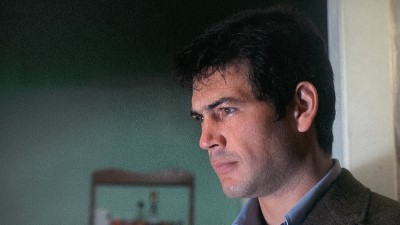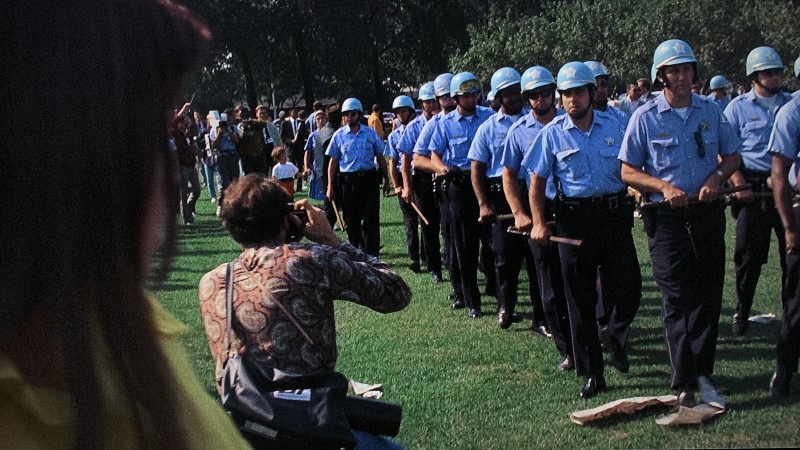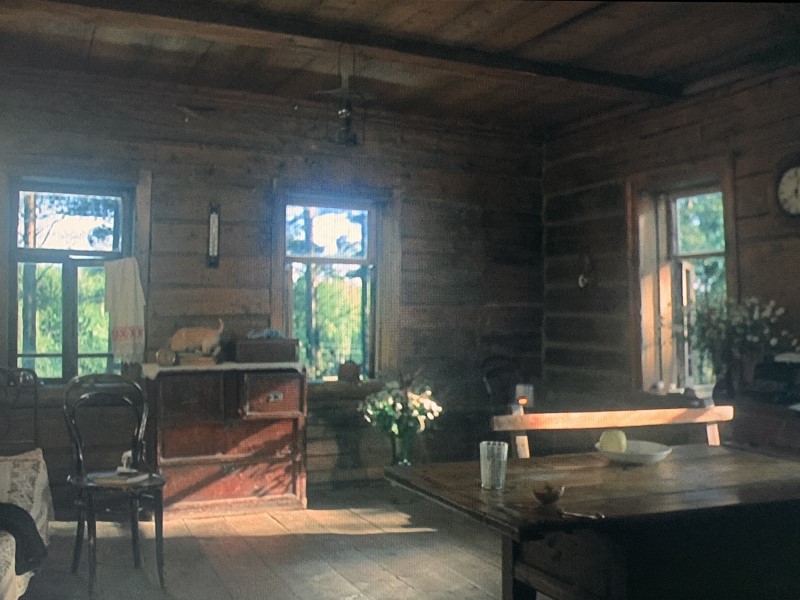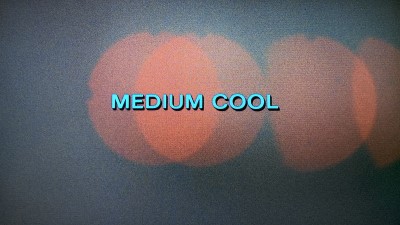
USA 1969
The strikingly titled Medium Cool is an exciting and novel piece of film-making. Wanting to produce a film that documented America’s social and political problems, the film’s writer, photographer and director Haskell Wexler captured the public unrest surrounding the Democratic National Convention held in Chicago in August 1968. With this incendiary footage of his actor Verna Bloom (wandering around the streets through the masses of protesters, cops and national guard) in the can, Wexler built up a storyline and characters to a feature length.
The structure of the resulting film is something like a Russian Doll. I’ll start with the innermost element: the film’s plot. This is quite rudimentary, almost soapy: a jaded news cameraman (John Cassellis, played by the dark and handsome Robert Forster) slowly develops a conscience. Fired from his job, he romantically becomes attached to a young boy (Harold Blankenship) and his single mother (Bloom), both recently arrived from the country and to Cassellis, interesting and genuine.

This sentimental storyline is housed within the film’s primary thematic structure, a hard-bitten pseudo-documentary which studies the cynical standard of ethics in the news media. We follow the cameraman, Cassellis and his soundman Gus (Peter Bonerz) around Chicago as they gather story material. We watch them carrying out a series of assignments, all of which offer some degree of light on social and political conditions in America.

The critique is damming. At best, the media are portrayed as disinterested observers. In the case of professionals such as John and Gus, they rave about the process (“I love to shoot film”), describing themselves as little more than flesh and blood extensions of their equipment. At worse, the cynicism and self-satisfaction is nauseating. Preference for violence and gore; contempt for explanation and detail; unthinking and dogmatic adherence to an accepted media narrative, are all symptoms of this. At the heart of Medium Cool’s narrative is Cassellis’ slow disillusionment with his work, which comes to a head when he learns that his material is being reviewed by the authorities.
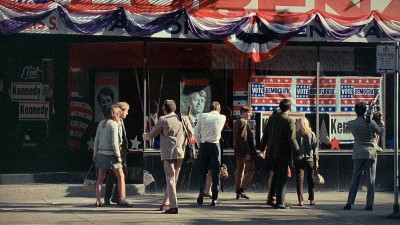
Many of the episodes are especially rich. The film opens with the pair arriving on the scene of a road accident. As they robotically film the victim whimpering, the post-modern immorality of Nightcrawler is pre-figured. Later on, one of Cassellis’ innocuous human-interest stories leads to an electric encounter with a group of black militants. This scene highlights the militants frustration at their portrayal in the mass media; their simmering aggression stonewalled by Cassellis’ numb disinterest.

Visually Medium Cool is a superb film, as you would expect from Wexler’s renowned reputation as a director of photography. Detail, framing and the lighting effects, especially the haze and reflections of late afternoon are particularly impressive. A bonus is the use of several of the Mothers of Invention’s songs, such as ‘Who Needs the Peace Corps’ and ‘Mom and Dad’. Songs which, in terms of satirising the response to the counter-culture are nothing short of iconic (their use in the film was in return for Wexler’s technical assistance with Uncle Meat, Frank Zappa’s long-gestated film project).
Wexler handles his awkward mixture of cinema verité documentary and family drama in a natural, accomplished way. One result however of the compromise between these elements is to jar the fluidity of the narrative. We get plenty of happenstance and loose ends to comprehend. Examples of which are the contrived way that Cassellis, Harold and Eileen meet, or the way character development takes small jumps. Liberties are taken with the cause and effect, A leads to B narratives style of conventional cinema.

On the flip side, the different approach to structure and plot offer the audience a rewarding challenge. The viewer is obliged to engage with the film, scene-by-scene and interpret the events and in turn the lives of the characters. Medium Cool is a film packed with detail and texture, especially in the opening half; so much so that by comparison the climatic scenes in Grant Park tend to drag as a result. The naturalistic performances of the actors are all good, Forster, Bloom and Blankenship as the unconventional trio of emotional interest deserve particular mention.

Wexler’s film does sit along those of his contemporary Peter Watkins, Privilege and Punishment Park. It manages the hybrid of documentary and drama much better than Privilege, although this is still an awkward marriage. It excels, as does the more concentrated and Punishment Park, in presenting America as a confused, socially and racially unjust and deeply violent society (from the Roller Derby to the Pistol Range). Medium Cool is a flawed but brilliant piece of film-making and one that is very worth experiencing.
